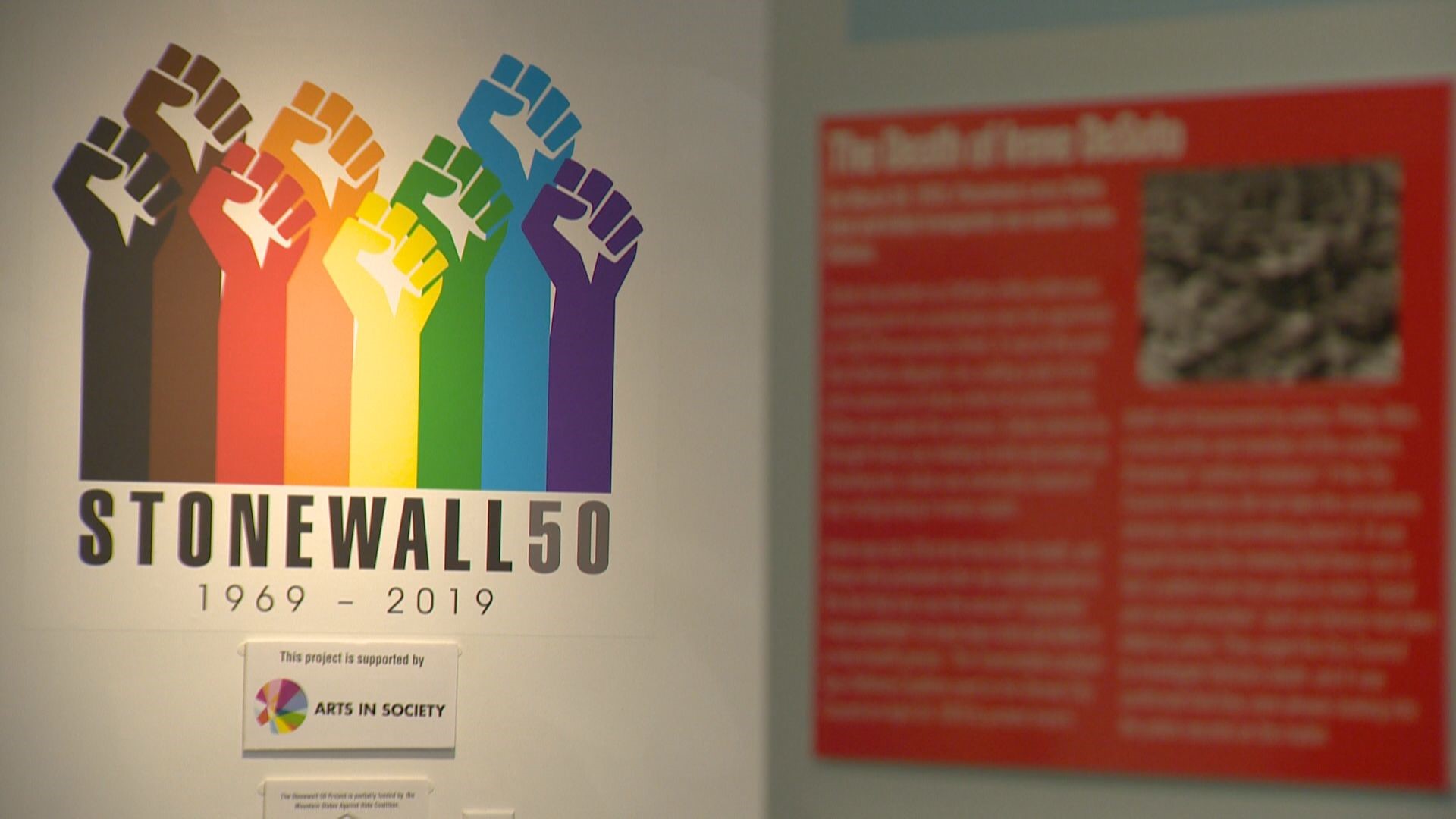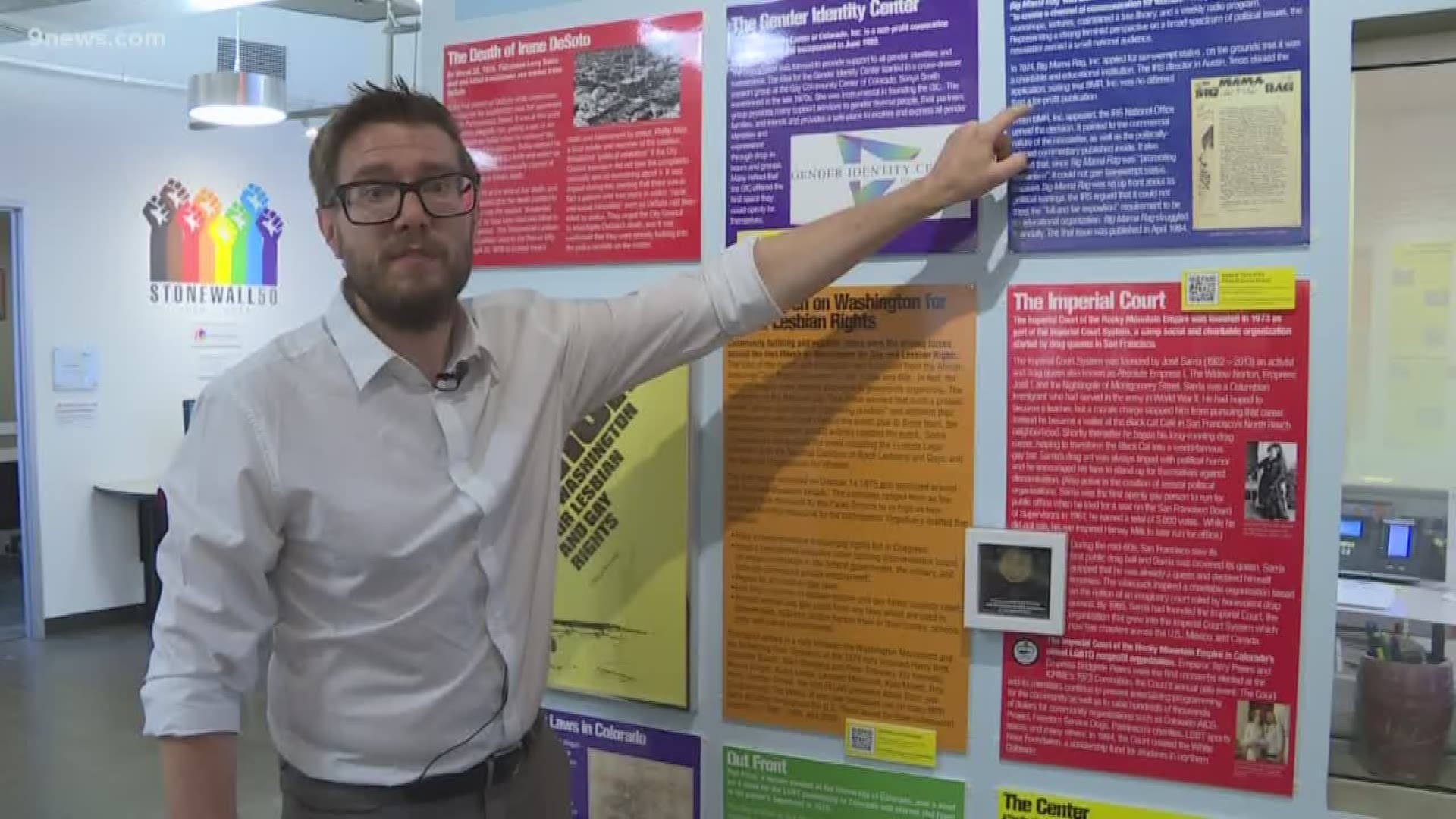DENVER — For the past few months, Denver’s Center on Colfax has displayed a new exhibit in honor of the 50th anniversary of the event that is widely considered the turning point in the fight of LGBTQ civil rights.
The Stonewall Uprising began on June 28, 1969, at the Stonewall Inn, a gay bar in Manhattan’s Greenwich Village neighborhood. Same-sex relationships were illegal in most states, and police raids on gay bars were common.
Police originally raided the Stonewall Inn on June 24, 1969, but returned a few days later. This time, the crowd resisted arrest and the demonstration grew to hundreds of people.
A year later, marches in commemoration of the Stonewall anniversary with the Christopher Street Liberation March – was essentially the first Pride parade.
"After Stonewall, in Denver, people began to organize," said David Duffield, the History Coordinator at The Center.
"The Gay Coalition in Denver is basically our Stonewall moment. It's when 300 LGBTQ people gathered at the Denver City Council and overturned five anti-gay laws with the cooperation of City Council members," he said. "Everything changes after that moment because that’s one moment when we can say, looking back, nothing was ever quite the same."
The first official Pride Parade in Denver happened in 1976.
The name on the permit back then was Chris Sloane.
"It cost a whole lot, $4," Sloane remembers. "It set the gay community in motion as a unit."
Today, Sloane is best known by a stage name, Christi Layne.
In the years following that first Pride event, Layne has become a well-known figure and activist in Colorado's LGBTQ scene and has worked within the community to provide services for people diagnosed with AIDS, battling addiction or struggling with mental health.
Layne remembers when Stonewall happened, more than a thousand miles away.
"What we realized is, something had happened but did we have the right to ask for rights," Layne said. "And that was the prevailing question. And we would eventually answer it because someone would say something very simple: All men are created equal."
"Within just a few years, you had the creation of the most of the major institutions for LGBTQ people in Denver and around Colorado," Duffield explained. "You started to see a flourishing of the culture."
He said it is important to preserve this history and share these stories.
"When we hear another story, we basically hear our own story. We practice empathy, and we build more love into the world. It's important to tell our stories and share our history, not simply because its been forgotten or neglected or hasn’t been done before, but basically so no queer kid has to grow up with the same kind of ignorance and fear we’ve all grown up with," Duffield said.
“There have been many achievements that have happened over the past 50 years such as marriage equality … but we have to remember there are a lot of people who live without those protections,” said Rex Fuller, also with the Center on Colfax. “I hope people realize that all these people should be treated fairly and equally.”
The exhibit is at the Center on Colfax at 101 E. Colfax Ave. in Denver. You can learn more here: bit.ly/2RKpCkR
SUGGESTED VIDEOS | Local stories from 9NEWS


